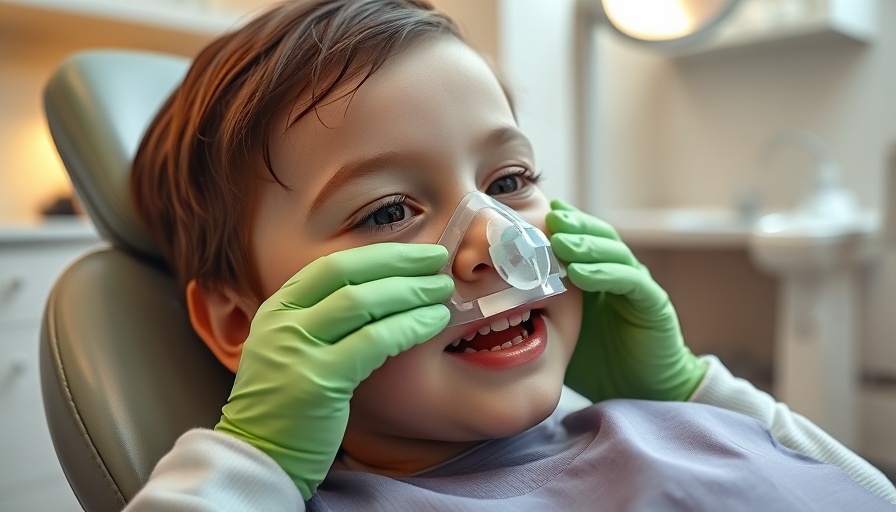
Understanding Oral Sedation: A Safe Solution for Your Child's Dental Anxiety
Every child’s dental experience should be as unique as they are, particularly for those grappling with anxiety or special healthcare needs. Oral sedation emerges as a beneficial solution for children whose anxiety makes dental visits stressful. This method not only helps calm nervous children but also aids in completing multiple necessary procedures in one sitting.
Why Some Children Might Need Oral Sedation
Oral sedation is increasingly adopted in pediatric dentistry to alleviate anxiety and help children remain still during procedures. For many, a trip to the dentist can be overwhelming, often causing fear that can hinder their ability to receive proper care. Studies suggest that sedation reduces anxiety significantly, facilitating smoother and less stressful dental visits.
Is Oral Sedation Safe for Anxious Children?
When managed by trained dental professionals, oral sedation is recognized as a safe option for children, especially those with dental anxieties or developmental disorders. The focus at Mertz Family Dentistry is on customizing sedation based on each child's unique needs, ensuring they remain safe and relaxed throughout the process.
Decoding the Medications Used for Oral Sedation
Medications like midazolam, hydroxyzine, or diazepam are commonly used for oral sedation in children. These medications have a long history of safe use and are given in carefully measured dosages based on the child's age and weight. Adherence to guidelines from the American Academy of Pediatric Dentistry ensures safe medication practices tailored for young patients.
What Parents Should Know: Preparation and Monitoring
Preparing for a sedation appointment involves simple instructions. Your child may need to fast for several hours prior to the sedation to ensure safety. During the procedure, sophisticated monitoring will take place, continuously checking vital signs like heart rate and oxygen levels to ensure a smooth and safe experience. Post-procedure, children may feel drowsy and are encouraged to rest at home.
What to Expect: The Procedure Timeline
The onset of oral sedation typically takes about 20 to 30 minutes after the medication is administered, where children become relaxed and a bit sleepy—but still responsive. This gradual transition ensures that they remain calm but can effectively undergo necessary dental work.
A Closer Look: Common Misconceptions About Oral Sedation
Despite its benefits, many parents hold misconceptions about oral sedation, such as the fear that it is harmful or that it creates lasting effects on children’s health. When used responsibly under the guidance of dental professionals, oral sedation is considered both safe and effective, demystifying the fears parents may have.
Next Steps: Empowering Parents with Knowledge
For parents contemplating oral sedation, having open discussions with the dental care team can shed light on any concerns regarding the procedure. Understanding the risks and benefits is paramount, ensuring that your child receives the best care possible.
Conclusion: Navigating Your Child’s Dental Journey
As dental visits are integral to maintaining your child's health, staying informed about options like oral sedation can empower you as a parent. Armed with knowledge and a supportive dental team, you can guide your child toward positive, anxiety-free dental experiences.
 Add Row
Add Row  Add
Add 




Write A Comment